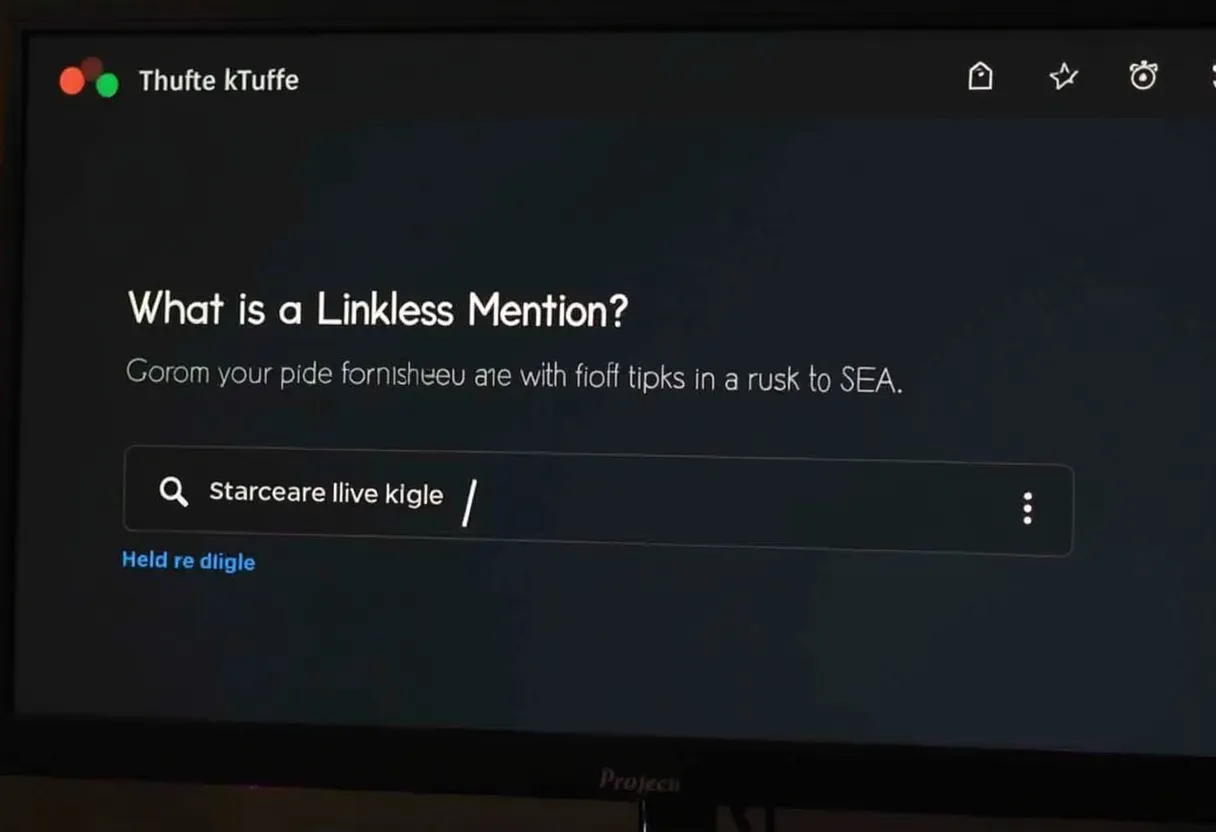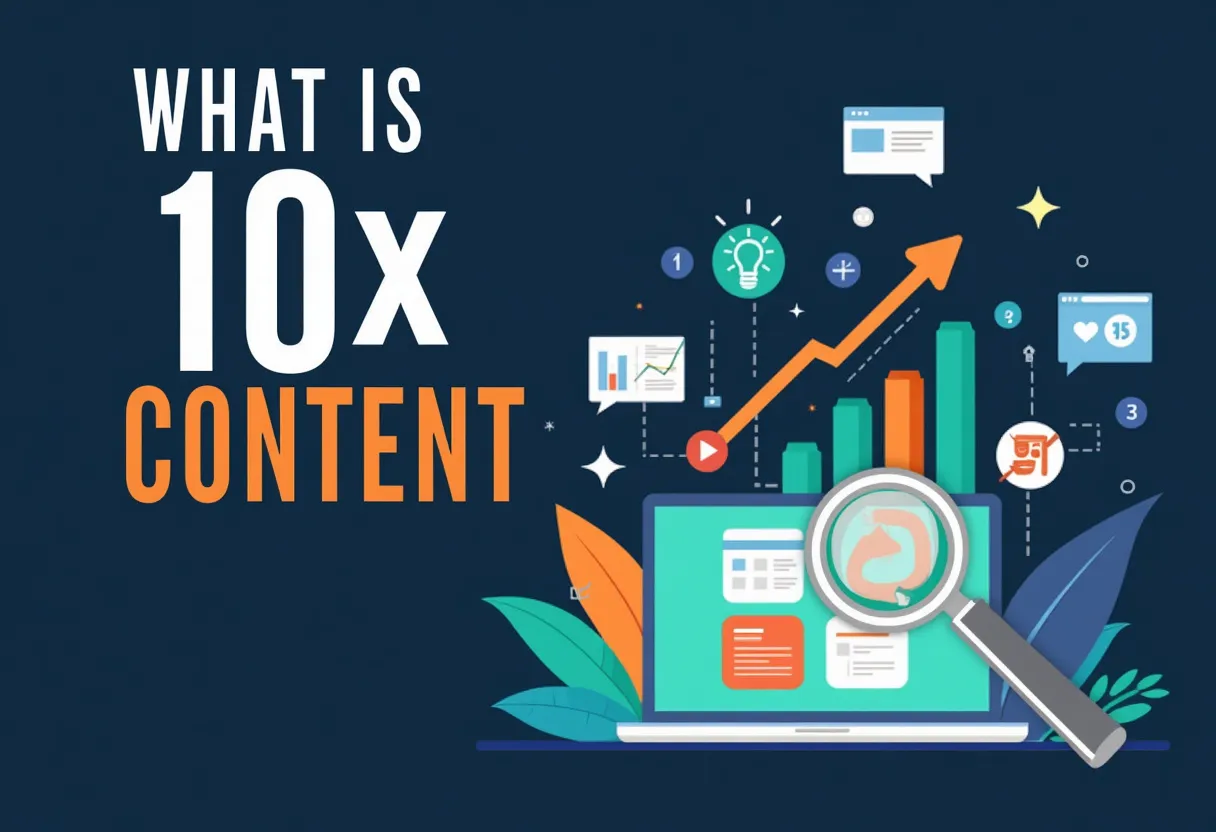Definition
What are Linkless Mentions?
Linkless mentions, also known as unlinked brand mentions or implied links, refer to instances where a brand, website, or related products and services are mentioned on a published site without a hyperlink back to the mentioned site. These mentions are textual references that do not include a direct link to the target resource.
How It Works
Function and Concept
Linkless mentions are recognized by search engines such as Google and Bing as signals of authority and trustworthiness. These mentions can be as strong as backlinks in indicating the credibility and relevance of a brand or website.
Search engines use advanced algorithms to identify and analyze these mentions, considering factors such as the context and sentiment of the mention, as well as the reputation and trustworthiness of the source website. For example, Google’s Panda patent mentions “implied links” as a signal that could be equal in weight to traditional backlinks.
These mentions can come from various sources, including social media, news articles, blogs, and other online content platforms.
Why It Matters
Importance in SEO
Linkless mentions contribute to a website’s authority and trustworthiness, which are crucial for search engine rankings. They indicate that a brand is being discussed and recognized by other websites and users, which can enhance its reputation and visibility in search engine results pages (SERPs).
In an era where many top websites avoid providing followed links due to the risk of penalties, linkless mentions offer an alternative way to build site authority and improve rankings.
Google’s Search Quality Guidelines emphasize the importance of outside, independent reputation information about a website, which includes linkless mentions.
Best Practices
Recommended Methods and Tools
Track Brand Mentions:
Use tools like Google Alerts, BuzzSumo, and Awario to monitor and track brand mentions across the web. These tools can help identify both linked and unlinked mentions.
Leverage Digital PR:
Engage in digital PR practices such as contributing thought leadership articles and publicizing newsworthy content to achieve contextually relevant brand mentions.
Social Media Engagement:
Interact with customers and prospects on social media to increase brand mentions and awareness. This can help spread mentions of your brand across various platforms.
Outreach and Conversion:
Reach out to websites that have mentioned your brand without linking to it and request a link. This can be done via email and requires effective communication and persuasion skills.
Contextual Relevance:
Ensure that the content surrounding the mention is relevant to your niche, geographic location, and industry. The more reputable the source website and the more compatible the content, the greater the positive impact on your SEO.
Additional Tips
Quality Over Quantity: Focus on obtaining mentions from reputable and trustworthy sources rather than aiming for a high volume of mentions from low-quality sites.
Monitor Sentiment: Keep track of the sentiment behind the mentions to ensure they are positive and beneficial to your brand’s reputation.
Combine with Link Building: Integrate linkless mention strategies with traditional link building efforts to create a comprehensive SEO strategy.
Related Terms
Brand Mentions as a Ranking Signal: Brand mentions, whether linked or unlinked, are considered by search engines as indicators of a brand’s authority and relevance.
Co-citation: Co-citation occurs when two different web pages mention the same third-party website. Search engines use this as a way to understand the relationship between sites.
Co-Occurrence: Co-occurrence refers to the presence of multiple keywords or phrases in close proximity on a web page, which helps search engines understand the content’s relevancy.
Digital PR for SEO: Integrating digital public relations with SEO strategies can yield high-quality mentions and backlinks from reputable sources.
Influencer Outreach for Backlinks: Engaging influencers to mention your brand can result in authoritative mentions and natural backlinks to your website.
Reverse Image Search Optimization: This practice involves optimizing images with proper alt tags and metadata, increasing the likelihood of your media being mentioned or shared online.
Social Proof for SEO: Social proof, including reviews and testimonials, can enhance brand credibility and improve SEO efforts.
User-Created Content for SEO: Encouraging users to create content around your brand fosters engagement and boosts SEO through organic mentions.
User-Generated Content (UGC) SEO: Leveraging user-generated content like reviews and social media posts can improve your SEO by increasing brand mentions.
Conclusion
Linkless mentions play a crucial role in modern SEO strategies by contributing to a website’s authority and trustworthiness without the need for direct hyperlinks. Recognizing their value and integrating best practices for tracking, leveraging digital PR, engaging on social media, and ensuring contextual relevance can significantly enhance a brand’s online presence and search engine rankings. Combining these methods with traditional link-building techniques offers a well-rounded approach to achieving SEO success.



